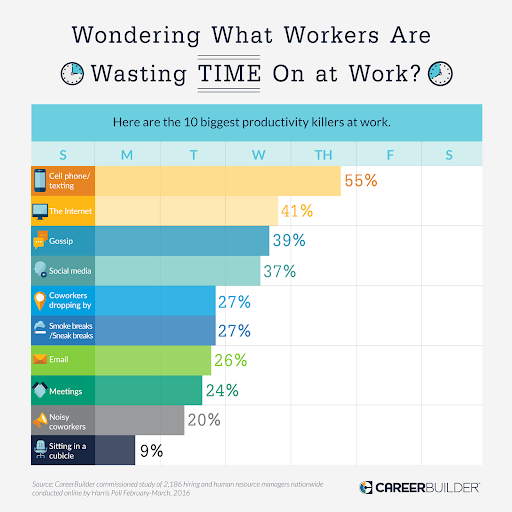How to Add 13 Years to Your Life | engage2learn
by Shannon Buerk, Founder, and CEO of engage2learn.
Plato Said It Best
Distraction and lost productivity in the workplace have many harmful consequences, including added stress, longer working hours, and low morale. Acclaimed public speaker, Brendon Burchard, recently penned this workplace epidemic, “The Stunning Costs of Distraction,” and since conducting my own research on this topic, I have been both fascinated and alarmed. While advances in technology prevail as the top, modern-day distractors, productivity concerns date back to ancient Greece. Perhaps Plato surmised it best when he said, “All things will be produced in superior quantity and quality, and with greater ease, when each man works…without meddling with anything else.”
Plato surmised it best when he said, “All things will be produced in superior quantity and quality, and with greater ease, when each man works...without meddling with anything else.” Click To TweetAlarming Productivity Statistics
According to recent productivity statistics, the quintessential 8-hour work day is no more. In fact, the average employee contributes just six hours daily at best. The math is simple: it takes nearly 25 minutes for one to return to full productivity after a distraction, and the 2018 Workplace Distraction Report cites an average of 55 distractions every day! That accounts for merely 11 minutes of uninterrupted productivity between distractors, which are depicted in the CareerBuilder graph below. According to a University of California at Irvine study, “People compensate for interruptions by working faster, but this comes at a price: experiencing more stress, higher frustration, time pressure, and effort,” (source). No wonder a staggering number of Americans report career fatigue and burnout, and we all know that public education, though highly rewarding, is a high-stakes, high-stress field of work.
Opportunity Costs
Besides lost productivity, there are other costs to distractions. Burchard estimates that the time the average person spends on distractions over a lifetime adds up to a total of 13 years of 24-hour days. He also calculates that this same amount of time turned into productivity could yield approximately $1,000,000 in earnings. Are we spending our time the way we want to spend it? If we are having to work later to make up for two hours of distractions every day, what are we missing as a result? If we want to change this dynamic, we need to be intentional. There are plenty of people who stand to gain from our distraction. But that, my friends, is another blog.
Besides lost productivity, there are other costs to distractions. Burchard estimates that the time the average person spends on distractions over a lifetime adds up to a total of 13 years of 24-hour days. Click To Tweet
Solution-Focused Remedies
It is true that knowing is half the battle. (Yes, I just quoted G.I. Joe there!) Begin by arming yourself with more information; I recommend Tristan Harris’ TED Talk, “What is the Cost of Infinite Distractions.” At engage2learn, we always devise an Action Plan. Which of these three, simple actions are you willing to take to get started minimizing your distractions and getting your life back? You got this!
- Become aware of how you are spending your time. Track your time if you have to by using an app like Timely, Everhour, or Wrike. Many phones and computers have trackers built in for apps and usage as well. If you truly track your time and how you are spending that time, you will be shocked. We have done this in our org and it has changed everything.
- Control your technology instead of letting it control you. Turn off notifications, for example, or use an app like Focus Me that limits time on distractions. What else can you try here?
- Quit multitasking. I wish multitasking worked. I really, really do, but all the research shows that it doesn’t work. Deep down, we all know that to be true. What is a better way to handle your to-do list?





